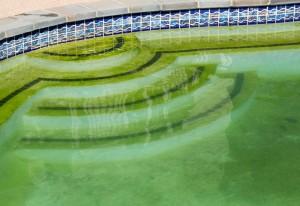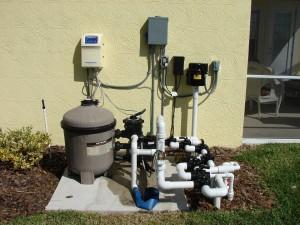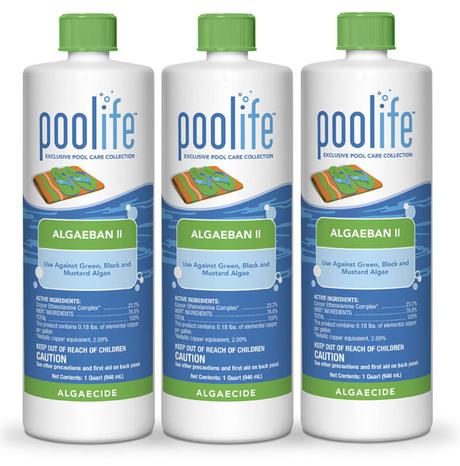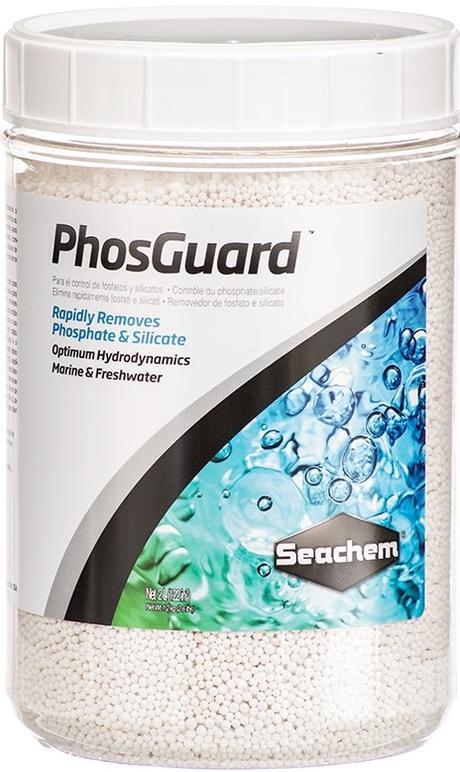How To Keep Your Pool Algae Free
To enjoy your pool to the hilt, you need to keep its water clean, clear, and healthy.
Having a swimming pool in your backyard is fun, and a great way to teach your kids how to swim, but swimming in unhealthy water can spoil all of the entertainment. If your pool water starts to turn green and muddy, then it is not just an unsightly picture, but it is also bad for your health.
Yes, the onslaught of algae blooms is a nightmare for every pool owner. It is a problem that pool owners have to deal with at some stage or the other. No matter what you do and how well you take care of your pool, but at times it seems that keeping algae blooms out of the pool water is a tall order.
Where Does Pool Algae Come From?
There are various ways that algae spores can enter your pool – rain, wind and dirt – any or all of them are capable of causing an algae bloom in your pool. It is not just rain, wind and dirt that bring in algae spores to your pool, even a swimmer’s body, pool cleaning tools and/ or dirty swimsuits are also capable of causing an algae epidemic.

Algae are living aquatic organisms, which have a tendency to multiply at a rapid rate. Algae contain chlorophyll, and they use photosynthesis to grow. Like all other living beings, algae also need food to grow, and a dirty pool has enough ingredients for them to feed on and grow rapidly.
You have to constantly keep an eye on your pool so that there is no algae outbreak in your pool.
The problems that algae can cause in your swimming pool
There are many problems that can crop up due to an algae bloom. And, the biggest problem is that no one likes to swim in dirty water. What is the point in having a pool where your family and friends would not like to swim? The second significant issue is that it requires a lot of effort and money on the part of the homeowner to get rid of an algae bloom. Last but not the least, after an episode of an algae bloom, future algae outbreaks become a frequent feature.
Hence, it is important for you as a homeowner to devise ways and means that prevent an algae bloom in your pool.
If you want to keep your swimming pool free of algae, then it is imperative that you nip the problem in the bud. It is no secret that it is impossible (and not recommended as well) to swim in a pool that has an algae bloom in its water.
Here are 7 Tips to Keep Your Swimming Pool Algae-Free
1- You have to ensure that your pool circulation system works properly – If you want your pool to stay algae free, then you should make sure that your pool circulation system runs in perfect condition, almost all the times. Your pool circulation system can only run properly if you clean the pump strainer basket and skimmer on a regular basis. This is the only way you can ensure that the water and chemicals that sanitize your pool keep circulating in it properly.

Another thing that you have to clean at regular intervals is the filter – backwashing and cleaning it is equally important. Irrespective of the type of filter you use, dirt and debris would eventually clog the filter. And, this is the reason why you need to clean the filter on a regular basis.
Also, make sure that you run your pump and filter for at least 8 – 10 hours every day during the swimming season.
Hence, if you want to keep your pool algae free then you should regularly clean the filter, skimmer and pump strainer basket. And, make sure that you run your pump and filter as recommended.
2- Maintain your pool water chemistry at all times and regularly shock the pool – Make sure that you keep the sanitizer levels of your pool in the desired range, always. It is difficult to prevent algae spores from entering your pool, but if you maintain your pool water chemistry, then you can surely avoid an algae outbreak. Maintain the pH balance of your swimming pool in the range of 7.4 – 7.6, alkaline level anywhere from 100 – 150 ppm, pool calcium hardness in between 175 – 225 ppm and most importantly keep the chlorine levels at 3 ppm. Chlorine is the most frequently used chemical to keep your pool water sanitized, and it can prevent the bloom of algae pretty effectively.
Also, make sure that you shock (super chlorination) your pool on a regular basis, at least once a weak. Depending on the type of the algae that has entered your pool, you can double, triple or quadruple shock the pool to keep your pool water free from algae.
3- Use an Algaecide Regularly

Another way of preventing an algae bloom is to start using an algaecide like Algaeban from Poolife on a regular basis. Algaecides effectively prevent algae spores from mushrooming into full-blown algae blooms. There are different kinds of algaecides available in the market like silver, copper and gold based algaecides, quaternary ammonium compounds and polymers. If you want to successfully tackle the algae problem, it is recommended that you use algaecides once every week.
4- Brush your pool regularly, but first find a perfect brush for your pool – As a pool owner you also have to make sure that your pool walls remain clean. Scrubbing and brushing your pool walls is yet an effective way to keep your pool clean and free from the menace of algae. Depending on the type of your pool, it is important for you to first get the right kind of brush that can effectively clean the walls and floor of your swimming pool. For example, if you have a concrete pool, then a wire brush would well serve the purpose, but if you have a vinyl pool, then you need to get a nylon brush for your pool.
Once you get the perfect brush for your pool make it a habit to clean the pool walls, floor and steps at least once every week.
5- To prevent algae growth, make sure that there is no phosphate in the pool
Algae are living organisms,

When you eliminate the phosphates present in your swimming pool, then you can rest assure that the growth of algae spores is nipped in the bud. You can buy phosphate removing chemicals like Phosguard from Seachem and use it once a week, which will ensure that your pool doesn’t see an algae bloom.
6- Remove dust and debris with a vacuum cleaner once in a while – Though scrubbing and brushing removes most of the dirt and debris from the walls and steps, but to clean the floor properly you should vacuum your pool once in a while. Most of the dirt and dust that settles down in the pool is found on its floor, and the best way to get rid of them is by vacuuming your pool. Vacuuming removes any and all the algae spores that enter your pool.
7- You need to keep a hawk-eye on your pool throughout the year – You have to be constantly on your toes as far as pool maintenance is concerned. Your pool needs regular maintenance and you have to clean it according to a schedule. You also need to keep an eye on algae growth. The moment there is any hint of algae growth, you need to act swiftly and get rid of them before they bloom. If you follow a maintenance schedule, you can stop algae spores from evolving into blooms. But, there are areas in your swimming pool like ladder and steps where if you don’t watch properly algae spores can grow quietly. Hence, when it comes to cleaning your pool, you have to be careful so that no area in the pool can become a safe haven for algae.
These days all of us are short on time, and pool cleaning can take a lot of your precious time. If you have a swimming pool in your backyard, just get in touch with Certified Leak Detection for pool maintenance.
Certified Leak Detection will take care of all your pool maintenance needs throughout the year. From an algae free swimming pool to a perfect pool water chemistry, you can rest assure that your pool would be ready for swimming at all times.


